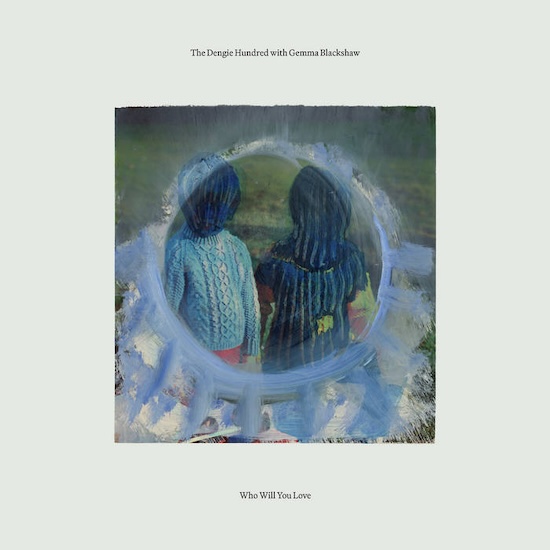To the extent that The Dengie Hundred appears part of any wider musical movement or community, it’s in a very limited sense, maybe just himself and a few other acts. It is nevertheless apparent that the sort of music he records taps – unwittingly or not – into a more far-reaching sensibility which doesn’t really require its practitioners to be part of ‘scenes’ and what have you. Who Will You Love is Owen Lawrence’s sixth release under this name; two have been collaborative efforts with Japan Blues, a Nipponophilic sound collage project, and all sound somewhat different, but – invariably – deeply spartan and shiverworthy.
That sensibility has precedent in certain pockets of 90s slowcore and post-rock, 80s peculiarities like Deux Filles, and various musicians who carried the dub torch while not making dub music per se. With The Dengie Hundred, a name taken from a small quasi-coastal community in Essex, there is something like a psychogeographic element: Lammas Land, an album of two side-long tracks released only five months before Who Will You Love, is inspired by the Walthamstow Marshes near Lawrence’s house. An A4 insert with the LP features writing, also on the Marshes, by Gemma Blackshaw, an art history professor specialising in Vienna; Who Will You Love expands on this by enlisting Blackshaw as the album’s vocalist.
In point of fact, she is credited here for ‘songs’ as well as vocals, which isn’t misleading exactly but does imply songwriting as a collaborative process distinct from the one which seems to have transpired here. Mostly, she home-recorded herself singing into her phone and Lawrence has taken those vocals, edited them (with minimal, though significant, effects added) and built the album’s six tracks around them. ‘Gate’ is a relatively brief intro – everything else on Who Will You Love runs to between five and eleven minutes – and the voice, what sounds like a dawdling child insisting “coming!” to their parent (who we presume is Blackshaw) is the sole instance of a voice being actively field-recorded.
For all the abstraction inherent to the arrangements of the album’s two longest songs, ‘Land Of Stories’ and ‘Sweet Boy’, a song framework is clear, and solidified. On the first, drone organ parts meet dub-echoed drumbeats, ending up somewhere between Susannah Stark, Grouper and a heavily bleached-out type of gothic folk. The other lollops along at gastropod pace, one-finger keyboard meeting spindly, nocturnal guitar: it reminds me more than a little of erstwhile Bristolians Movietone, recently subject to a reissue program by the World Of Echo label, whose related shop have been strong boosters of The Dengie Hundred. Appropriate to the feel of this music, you can’t quite join the dots between all this but they’re definitely there.
I love, too, how Lawrence uses feedback to comfort rather than confront on the latter half of ‘Sylvie’s Song’, where it’s a canvas for vocals that are especially palpably on the ‘way past bedtime, house otherwise empty, singing to oneself at the kitchen table’ tip; the last-day-on-earth blues meets echo-treated beats of ‘Night Crossing’, more chilling than chillout in the same way as Brian McMahan’s post-Slint project The For Carnation; and the strange urgency brought on by the clusters of – possibly synthesized? – bells and fluttery drums on ‘Pearl’. As with the Dengie Hundred project in general, much is left mysterious when it comes to Who Will You Love: Blackshaw, we read, sings of love for her children and partner(s) alike, but rarely is there sonic clarity allowing the listener to evaluate this. Like the alleged psychogeography of Lammas Land, you can fill in the gaps using your own life-based filters.


